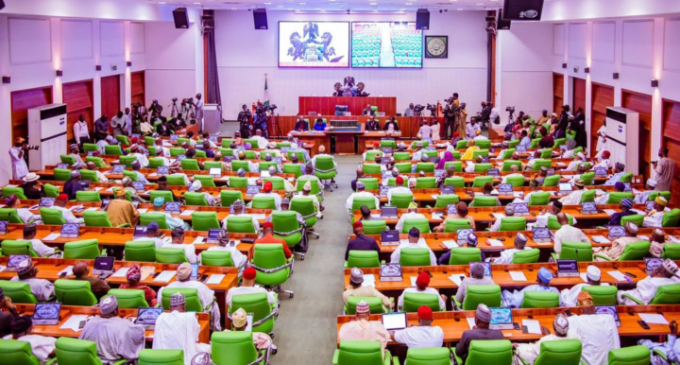From Ndubuisi Orji, Abuja
The House of Representatives has approved for second reading three bills seeking to return the country to a parliamentary system of government.
The bill is seeking to create the Office of Prime Minister, who will be the head of government and Office of President, who will be head of state, as obtained in the first republic.
The proposed legislation is titled: “Bill for an Act to Alter the Provisions of the Constitution of the Federal Republic of Nigeria, 1999 to provide for the Office of the Prime Minister as Head of Government and the Office of President as Head of State and to provide for a Framework for the Mode of Election to the said Offices and for Related Matters (HB.1115).”
The bill sponsored by the Minority Leader, Kingsley Chinda, and 59 others, if passed into law, will replace the presidential system of government currently in place.
The two other proposed legislations seek to alter the constitution to Review the Mode of Electing the State Governors, Deputy Governors, and the Appointment of the Commissioners of States and review the Means of Election into the Offices of the Chairmen and Vice-Chairmen of the Local Government Councils in Nigeria.
The country has operated a parliamentary system of government in the first republic, before the 1966 coup truncated democracy in the country.
When Nigeria returned to civil rule in 1979, it adopted the presidential system of government, which is currently in operation.
The proposed legislations, if eventually passed into law, will create the office of prime minister, who will be elected from amongst members of the parliament while the ministers will also be chosen from among members of the parliament.
This is in contrast to the presidential system where the President is elected directly by the electorates and appoints his ministers from outside the parliament.
One of the sponsors of the bills, Abdussamad Dasuki, shortly after the proposed legislations were introduced in the House in 2024, said they were intended to cure the defects in the presidential system of government.
“Over the years, the imperfections of the presidential system of government have become glaring to all, despite several alterations to the constitution to address the shortcomings of a system that has denied the nation the opportunity of attaining its full potential.
“Among these imperfections are the high cost of governance, leaving fewer resources for crucial areas like infrastructure, education and healthcare, and consequently hindering the nation’s development progress, and the excessive powers vested in the members of the executive, who are appointees and not directly accountable to the people.
“That (parliamentary) was the governance system of the first republic, a period when legislative and executive powers were exercised by the representatives of the people in parliament and in the executive, and by the nature of the system, these representatives were accountable to the people. For six years while it was in operation, the system worked for the country.”
Also, the House at Thursday’s plenary, passed a bill to set a time frame for the determination of civil and criminal cases
at trial and appellate courts.
The bill sponsored by the deputy speaker, provides that: “In any civil or criminal matter except in election petition, a trial superior court of record shall deliver its judgement in writing within 270 days from the date of the filing of civil or criminal matter.
“In any civil or criminal matter except in election petition, a trial inferior court of record or tribunal shall deliver its judgement in writing within 210 days from the date of the filing of the civil or criminal matter.”
